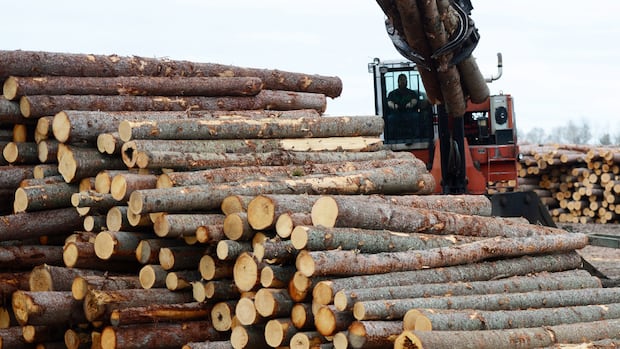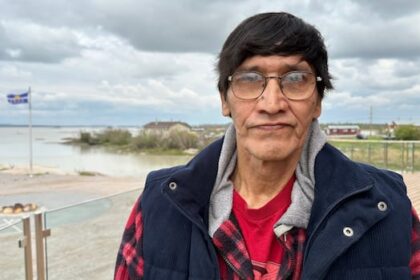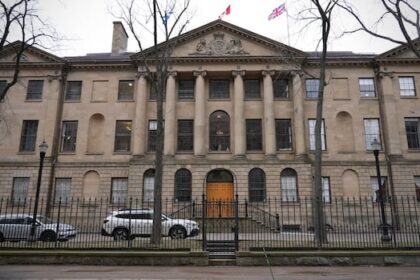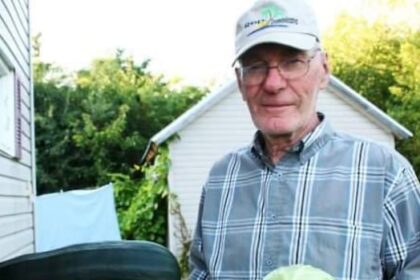New BrunswickNatural Resources Minister John Herron doesn’t believe New Brunswick wood is unfairly subsidized, but he doesn’t want to risk heightening disagreements with other provinces.John Herron plays down province’s lost exemption, endorses common front Jacques Poitras · CBC News · Posted: Nov 04, 2025 5:00 AM EST | Last Updated: 3 hours agoListen to this articleEstimated 5 minutesNatural Resources Minister John Herron says agreeing to cap Canadian wood at a quarter of the U.S. market share would allow U.S. President Donald Trump to claim victory. (Sean Kilpatrick/The Canadian Press)New Brunswick’s natural resources minister says the province’s historic exemption from U.S. softwood lumber duties may be gone forever, and it’s time for a single, unified national lobbying focus to secure a new deal with the Americans.John Herron told CBC News that while the province continues to disagree with U.S. industry claims that its wood is unfairly subsidized, he did not want to take a position that might heighten disagreements with other provinces.“I don’t think this is the time for us to get into too much nuance,” Herron said.“We have a common national type of perspective, and that’s one we would all lean in on.” To that end, Herron is endorsing the idea of accepting a cap or quota on how much Canadian U.S. softwood can enter the U.S. market, in return for those exports being tariff-free and duty-free. He said agreeing to cap Canadian wood at 25 per cent of U.S. market share, around what Canada has now under current market conditions, would let President Donald Trump claim victory.It would also provide Canadian producers much-needed stability, he added.Herron said the province’s softwood industry isn’t unfairly subsidized but said the focus should be on getting a deal that could include a quota system. (Chad Ingraham/CBC)Prime Minister Mark Carney said in July that quotas were one possible way to resolve the dispute over softwood.New Brunswick’s forestry sector employs more than 20,000 people around the province and its supply chain provides the provincial and municipal governments with more than $661 million in tax revenue each year, Herron said.Dustin Jalbert, a Massachusetts-based wood market economist, said the proposal could work.“If the industry, on both sides of the border, agreed to a quota system and a very low tariff or a very low duty with that, I think the Canadian industry would be pretty happy with that, given structurally that’s probably where things are going anyway.”WATCH | ‘It’s still problematic’: Lumber sector needs a deal:N.B.’s softwood woes aren’t just a Donald Trump problemProvincial producers lost their exemption from U.S. duties in 2017, long before the president launched trade war.The market share for Canadian wood in the U.S. dropped from 34 per cent in 2000 to 23 per cent last year.Of the 45 per cent in U.S. surcharges on lumber being shipped across the border, only 10 per cent are the so-called national security tariffs Trump imposed earlier this year.The other 35 per cent are a mix of countervailing and anti-dumping duties dating back to 2017.The rate fluctuates every year based on annual reviews by the U.S. International Trade Commission.“It was very problematic before,” Herron said. “It’s still problematic.”Wood from New Brunswick and the three other Atlantic provinces was exempt from such protectionist U.S. measures for decades.Prime Minister Mark Carney has said that quotas were one possible way to resolve the dispute over softwood. (Adrian Wyld/The Canadian Press)But New Brunswick lost that exemption in 2017 after U.S. industry lobbyists complained about the province’s 2014 forestry plan, which allowed increased harvesting on Crown land.They complained that an increase in wood from the province’s Crown land amounted to an increase in government-subsidized wood.They also cited a range of subsidy programs, including one that lets forestry companies generate electricity for the N.B. Power grid and then buy it back at a lower price.The commission agreed, calling the government the “dominant supplier” of wood to a relatively small number of mills, leading to “significantly distorted” prices and cheaper softwood that created unfair competition for U.S. producers.In a 2022 ruling, when Joe Biden was president, the commission said wood consumption from private woodlots had increased, but it was not convinced this meant an increase in the total share of private wood.“That’s one thing that I think is missed in all this,” Jalbert said.“It’s really not a process that’s determined by each president. It’s really its own process based on existing trade law. … As long as they can prove there’s harm done to the domestic industry, then the Department of Commerce will levy those assessments.” Herron calls for unified approachCanadian producers would be faced with 35 per cent duties “regardless of who would be in office,” Jalbert said.New Brunswick and provincial producers have argued since 2017 that the U.S. rulings on subsidies are wrong and that the earlier exemption from duties should be reinstated.“We are alive to the concerns and positions that the American lumber alliance has,” Herron said.He said New Brunswick’s method of calculating royalties and stumpage rates from Crown land, and the amount of wood from Crown land, “warrants a carve-out” from U.S. duties like the one the province once enjoyed.But Herron said it’s more important now to adopt a unified Canadian approach, such as accepting a quota, that doesn’t put New Brunswick at odds with other provinces. ABOUT THE AUTHORJacques Poitras has been CBC’s provincial affairs reporter in New Brunswick since 2000. He grew up in Moncton and covered Parliament in Ottawa for the New Brunswick Telegraph-Journal. He has reported on every New Brunswick election since 1995 and won awards from the Radio Television Digital News Association, the National Newspaper Awards and Amnesty International. He is also the author of five non-fiction books about New Brunswick politics and history.
N.B. minister backs cap on softwood to secure tariff deal











